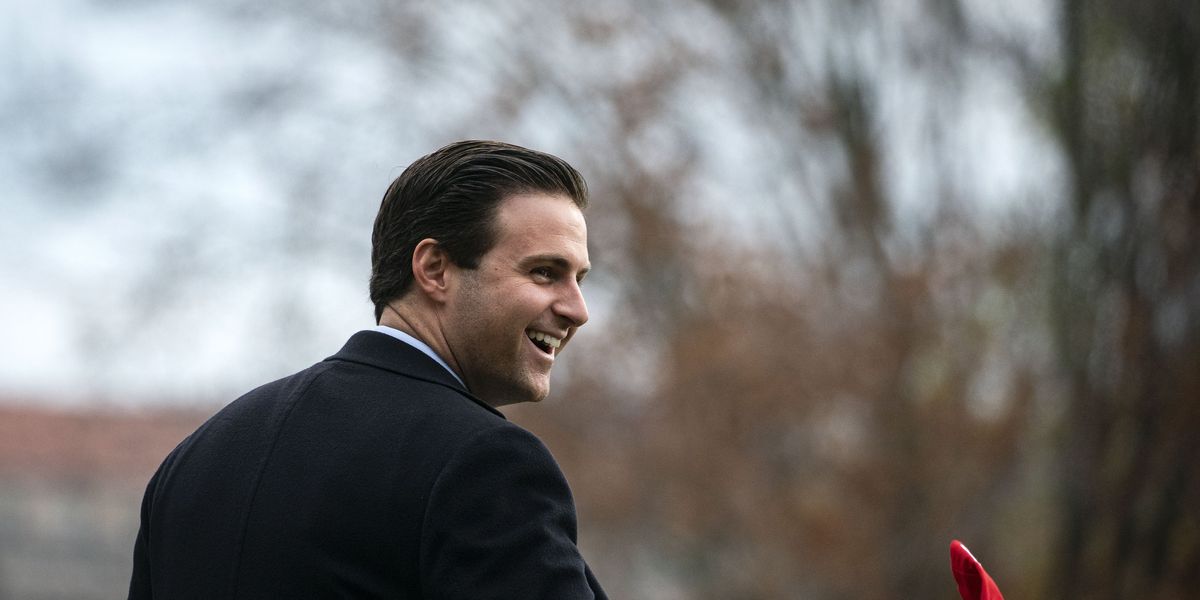- cross-posted to:
- [email protected]
- cross-posted to:
- [email protected]
Donald Trump’s former White House aide is under fire after a video showed him claiming to distribute fake money to homeless people so that they will be arrested when they spend it.
Johnny McEntee, formerly the White House Presidential Personnel Office under the former president, posted a video on TikTok in which he discusses the purported scheme to “clean up the community.”
“So I always keep this fake Hollywood money in my car, so when a homeless person asks for money, and I give them like a $5 bill, I feel good about myself, they feel good,” said McEntee, also a senior advisor to Project 2025. “And then when they go to use it, they get arrested, so I’m actually helping to clean up the community and get them off the street.”



Well that’s what the situation escalated to, yes, but what was the instigating factor. I know cops really don’t need one in practice, but usually they at least make one up.
That’s a very interesting question you’re asking. Does the guilt lie with the police for the murder, or with the person that put him in the path of the cops? If you set a dog on children, and they get horribly mauled, is it the dogs fault? Does the guilt lie with the person pulling the switch, or with the lunatic that tied them to the trolley tracks in the first place?
I understand why the op here would reframe that question, as it could quite reasonably be interpreted as shifting responsibility for their actions away from the (quite guilty) cops. It’s still a good question to ask though, especially in the current context of someone intentionally trying to dangle vulnerable people in front of the cops like a steak to a guard dog.
(Personally I think guilt lies with everyone, but that calculating the exact degree of EDIT (for clarity): I mean calculating each individual person’s guilt, as in all of society. Just to clarify that the cops are absolutely guilty. But calculating the guilt of everyone in society is impossible.)
Both is an acceptable (and accurate) answer.
Most situations aren’t entirely binary.
A key point in your statement is ‘person’. Though it’s not universal, humans are understood to have better… Well, understanding of their actions. A vicious dog doesn’t understand that they’re vicious, they just rip and tear. A human is supposed to have that inner monologue to say “No.”
So, you release a dangerous animal on someone, you’re at fault. You kill someone, you’re at fault.
In George Floyd’s case, the cop is responsible. 1000%. I’ve been in situations, I’ve pointed a gun and I waited. Even when someone might be rigged to blow, you don’t just shoot them. Whomever called the cops isn’t responsible because the Cop should’ve been expected to be a human and not some deity who can do no wrong. Yes, everyone in America at this point should know that cops aren’t your friend but some people don’t know that.
(I was taking a bit of a jab at cops by implying they aren’t capable of free agency, which could have been more clear.)
I’m not sure if you understood my point. An absolutist approach isn’t representative of the real world, which is fine because representations don’t have to be perfect (by definition, I think). The question isn’t where do you draw the line, as with all trolley problem questions it’s why do you draw the line. Did the person who called the cops get him killed? Well, in an absolutist view, yes they did. They put him in the situation to get him killed. The cops are also guilty of killing him, as is the person who made the hypothetical counterfiet money.
But since we do not live in a truly accurate representation nor too a strict absolutist one, where do we draw that line? Its not a question of where in the legal code do we draw that line, or if their behavior was excusable or inexcusable, it’s a question about how we determine the answer to those questions.
When someone commits crimes it is legal, ethical, moral, and reasonable that you call the cops on them. It’s also reasonable to expect that the cops arrest them not summarily execute them. You can’t make the people responsible for the cops behavior.
You are taking this a great deal more literally than I intended for it to be taken. This is a hypothetical question that asks how we decided that it is legal, ethical moral etc. to call the cops. It’s not a question about the specifics of this case except where they serve to exemplify the concepts.
… I could have been more explicit about that, I realize.
It is legal ethical moral and reasonable to call the cops because it is the only practical way to make people stop breaking the law. If the cops don’t want to be prosecuted or hated they can stop overreacting and hurting people. If the people want to avoid the risk of excess harm they can stop committing crimes or vote for politicians who hold cops accountable. None of this is my problem.